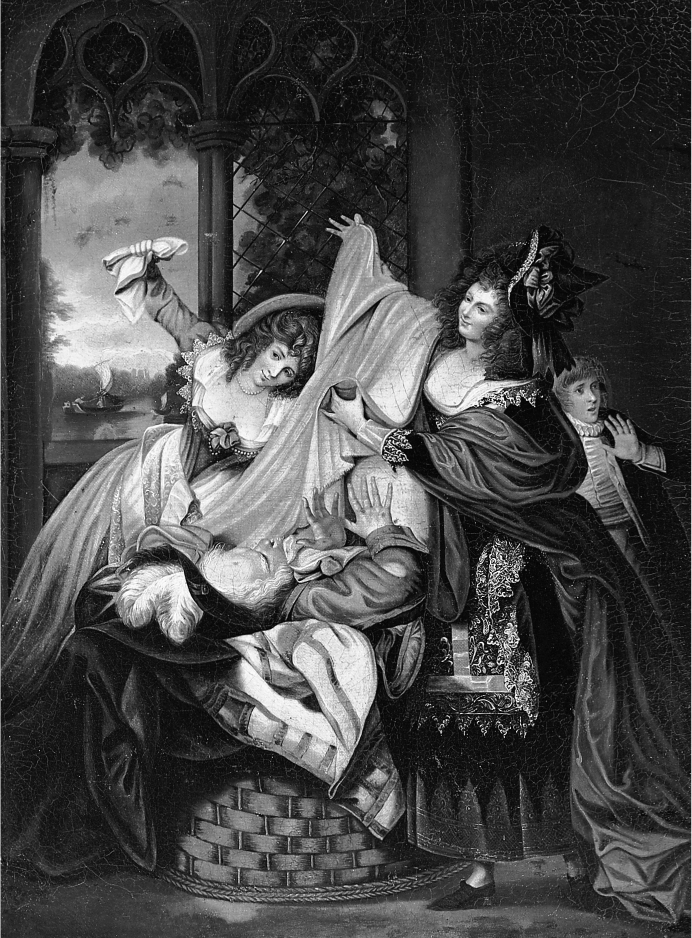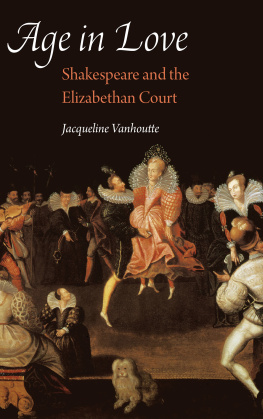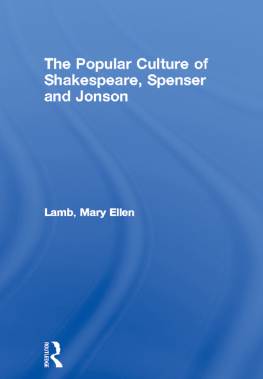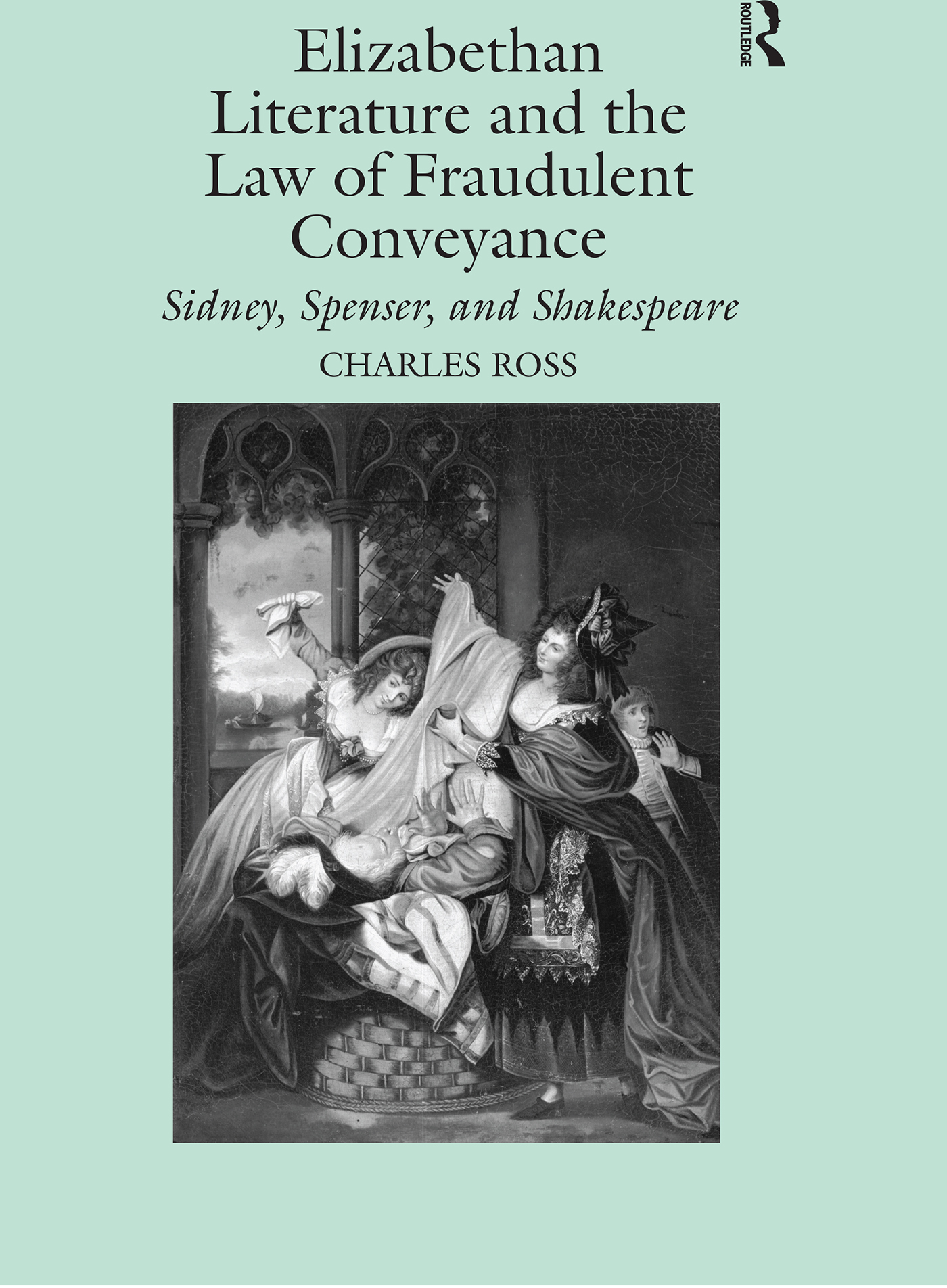Contents
First published 2003 by Ashgate Publishing
Published 2016 by Routledge
2 Park Square, Milton Park, Abingdon, Oxon OXI4 4RN
711 Third Avenue, New York, NY 10017, USA
Routledge is an imprint of the Taylor & Francis Group, an informa business
Copyright Charles Ross 2003
The author has asserted his moral right under the Copyright, Designs and Patents Act, 1988, to be identified as the author of this work.
All rights reserved. No part of this book may be reprinted or reproduced or utilised in any form or by any electronic, mechanical, or other means, now known or hereafter invented, including photocopying and recording, or in any information storage or retrieval system, without permission in writing from the publishers.
Notice:
Product or corporate names may be trademarks or registered trademarks, and are used only for identification and explanation without intent to infringe.
British Library Cataloguing in Publication Data
Ross, Charles, 1949
Elizabethan literature and the law of fraudulent conveyance
:Sidney, Spenser, and Shakespeare
1.Sidney, Sir Philip, 1554-1586- Criticism and
interpretation 2.Spenser Edmund, 1552?-1599- Criticism and
interpretation 3.Shakespeare William, 1564-1616- Criticism
and interpretation 4.English literature- Early modern,
1500-1700- History and criticism 5.Fraudulent conveyances
-England- History- 16th century 6.Law in literature
I.Title
820.9'355'09031
Library of Congress Cataloging in Publication Data
Ross, Charles, 1949
Elizabethan literature and the law of fraudulent conveyance: Sidney, Spenser, and Shakespeare / Charles Ross.
p.m.
Includes bibliographical references.
ISBN 0-7546-3263-6 (alk. paper)
I. English literatureEarly modern, 1500-1700History and criticism. 2. Law in
literature. 3. Sidney, Philip, Sir, 1554-1586KnowledgeLaw. 4. Shakespeare, William,
1564-1616KnowledgeLaw. 5. Spenser, Edmund, 1552?-1599KnowledgeLaw. 6.
LawGreat BritainHistory16th century. 7. LawGreat BritainHistory17th
century. 8. Law and literatureHistory16th century. 9. Law and
literatureHistory17th century. 10. Fraudulent conveyancesGreat Britain. I. Title
PR428.L37 R67 2003
820.9355dc21
2002074535
Typeset by IML Typographers, Birkenhead, Merseyside
ISBN 13: 978-0-7546-3263-4 (hbk)
Contents

Mistress Ford and Mistress Page convey Falstaff in a buck-basket of laundry. From a painting by Rev. Matthew William Peters, ca. 1789. Photograph supplied courtesy of the Folger Shakespeare Library.
There is doubtless a lengthy story to be told of the evolution of the land law in Elizabeths reign We read of fraudulent conveyances in several sessions, of fines and tenants for life, alienslands, corporationsconveyances and so on. In some cases the purpose of debate and legislation seems to have been to regularize and enforce a standard means of procedure, and to cut through the jungle of sharp practices which bedevilled the land market. And it must be remembered that as a high court Parliament could, and often did, take cognizance of cases of disputed title, calling witnesses and hearing counsel for the parties involved. The sheer amount of time and energy apparently devoted to all these problems demands both respect and understanding, and the record may provide varying degrees of insight into a number of problems. How far, and by what means, was the efficiency of the law advanced, and what did the lawyers themselves contribute to the progress? Why did the problem of fraudulent conveyances seem so unmanageable?
T. E. Hartley, ed. Proceedings of the Parliaments of Elizabeth I, I: xxivxxv.
Convey, the wise it call. Steal? foh: a fico for the phrase.
Pistol
For Clare
This book began as a project in the sociology of law, a branch of jurisprudence that studies the impact of laws on the beliefs and behavior of society. The development of laws prohibiting fraudulent conveyances first attracted me, as a Renaissance scholar, because legal historians trace modern rules to a statute passed in 1571, during the Elizabethan era. I was curious why the ethical questions the law seemed to have settled so much so that modern laws echo the wording of the statute of Elizabeth I were still alive. Not only are US states and federal bankruptcy experts tinkering with these regulations, but the key question of when and why the law should apply did not seem obvious to me or to those people I interviewed for the project, which like most sociology of law investigations depended on attitude questionnaires. Why should not someone subject to a sudden lawsuit be able to protect his assets by putting them in anothers name?
Uncertainty about the nature and working of the law raises cultural as well as legal issues. A comparison between modern and Elizabethan attitudes suggested itself, but since one cannot hand a questionnaire to an Elizabethan, I thought perhaps the literature of the period might provide clues on English thinking about the subject. It turns out that Shakespeare dramatized the issue, and its cloudy morality, in real life when he and his companions floated timbers from the old Theatre across the Thames to evade the grasp of Gyles Allen, who was claiming the building as an attachment to his land after the Burbages lease expired. Lawyers may choose sides on this one. A literary example of evading a creditor occurs when Mistress Ford has Falstaff dumped into the same river to save him from the clutches of her jealous husband. She thereby evades her marital debt of loyalty, while the ethical ambiguity of her action is signaled both by Mistress Pagess language convey, convey him out and by Falstaffs sordid experience in a buck-basket of laundry rammd in with foul shirts and smocks, socks, foul stockings, greasy napkins where he successfully hides until, despite almost drowning, he escapes. Developing this theme, The Merry Wives of Windsor offers a trove of references to fraudulent conveyancing, most of them unrecognized by scholars practicing an older approach to law and literature, which scoured the vocabulary of Elizabethan plays for legal allusions.
Exactly why fraudulent conveyance laws dominated the discourse of the period of history covered by this book roughly 1571 to 1601 is not easy to answer. A modern analysis of discursive practices suggests that what everybody did, but could not admit doing, found its sanction in the official insistence that everyone talk about it. This insistence was part of the economy of power wherein a counter-pressure from below met the governments strictures against distressed Catholics, as lawyers not unnaturally found ways to respond to official policy. Power, as Foucault said, moves in all directions.
The development of fraudulent conveyancing law was part of the process of the centralization of violence in the state. Private settlements easily led to trouble, the riots that Falstaff threatens at the beginning of The Merry Wives of Windsor or that the defendants were found guilty of in Twynes Case (1601), the judicial decision that did so much to clarify and solidify English law. Furthermore, the literary expression of law as the conveyance or carrying away of women that I find in the work of Philip Sidney and Edmund Spenser explains why the movement we usually think of from public to private between the medieval and early modern period is also a movement from private to public. The semantic field of fraudulent conveyancing already included the carrying away of women, thereby encouraging literature publicly to portray the private world of debt by narrating stories in which lovers or ravishers or passion carried women away. My argument for concentrating on a seemingly minor set of laws is that debt is more pervasive than sex, at least in the common law. Debt lasts all night.












